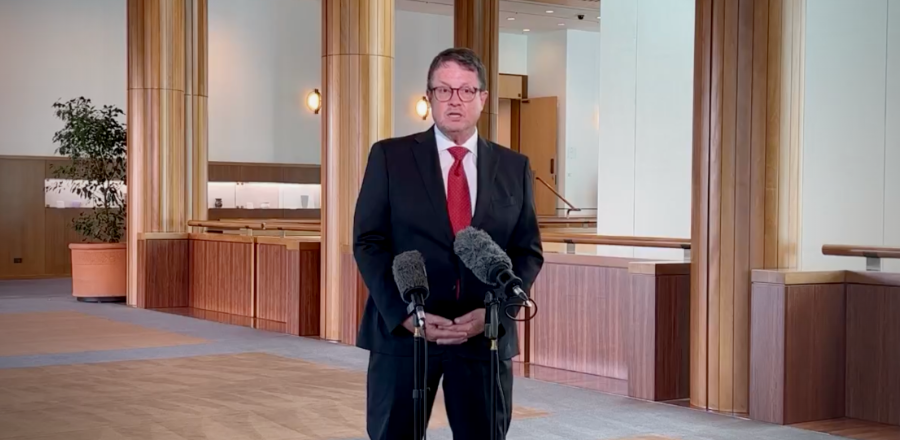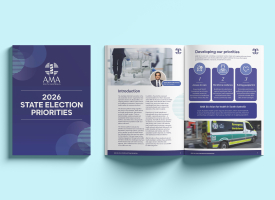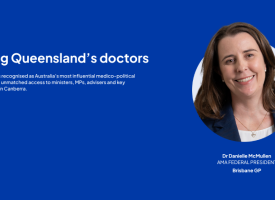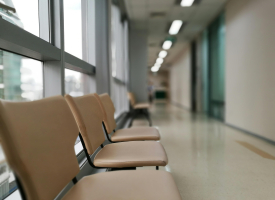AMA President releases report on Australian public hospitals in logjam
AMA President releases Australian public hospitals in logjam report
AMA President, Professor Stephen Robson, Doorstop at Parliament House, Tuesday, 31 January 2023

STEVE ROBSON: I'm Steve Robson, Federal President of the AMA, and I'm here today to launch our report into the hospital logjam and hospital performance around the country. We have information from the 201 public hospitals around the country that have both elective surgery and public emergency departments, and of the 201 across the country in the most recent reporting period, only three have met all of their targets.
It's a significant worsening of the situation since last year's report and it tells us that we are in a system that is under enormous strain at the moment. We have nurses, doctors, and healthcare workers who are desperate to provide care for Australians, but the need the resourcing to do that.
They're also more than statistics. They are human stories, and they're stories of suffering and pain of people waiting for care, waiting for urgent emergency department care, surgery and treatments around the country.
In fact, these are human stories that we want to hear and we have a logjam website where you can tell us your stories; stories that you have from waiting for care or waiting in emergency departments; and also where you can search using your postcode to have a look at the performance of hospitals in your area.
All you need to do is search AMA logjam and our website will come up. This is a national problem. It needs an urgent national plan. It needs urgent funding injection, and we need a long-term plan to deal with this.
We need long term reform, and we're suggesting 50-50 Commonwealth state and territory funding. We need to scrap the artificial cap and we need to look at a return to pay-per-performance so that hospitals that perform well are rewarded.
It's a critical issue for Australians around the country; and while people are saying this is an additional cost, it's not. Spending on health in this country is an investment. It's not a cost. So I released the report today. You can find it online and I stress that we want to hear your stories. We want to hear how these delays are affecting you and affecting your family.
QUESTION: In those hospitals, the three that made it, are they metropolitan or regional based? And is regional statistics worse than metropolitan?
STEVE ROBSON: It's really important to understand that we need to focus not on the hospitals that are doing well - they're in regional areas of Australia - but to look at the problems that are affecting the major hospitals that are serving most of the country and are so familiar to all of the Australians who live in our cities and major regional areas. There's no doubt that access to healthcare is worse in regional Australia and it's a growing and important problem for regional Australians, but also we need to focus on those hospitals that aren't able to meet their targets at the moment; and what we need to do to help the nurses and doctors who work in those hospitals - all healthcare workers in those hospitals - to achieve and do what they want to do which is to care for Australians.
QUESTION: With your incentive idea, is there a situation where some hospitals just could never ever get to that point and create an imbalance between hospital funding? Should therefore there be some other substitute funding for those hospitals that can't possibly achieve that?
STEVE ROBSON: There are multiple different situations in the country, and every hospital will have a different situation. We need to be flexible in the way we deal with this, but overall, the principles are the same: to recognise the problem, to have a national plan, to increase funding urgently, and to look at long-term funding reform that delivers for Australian patients.
QUESTION: So do we now need something akin to a national body that meets to discuss how we go forward with this? You want 50-50 funding - does that mean bringing all the states, territories, everyone together to create this uniform action?
STEVE ROBSON: National Cabinet is meeting later this week and we hope - in fact, we think that this will be high on the agenda. The state and territory premiers and chief ministers have come around to what the AMA has been saying for a long time, that funding reform is absolutely critical if we're going to move forward for the health of Australians.



